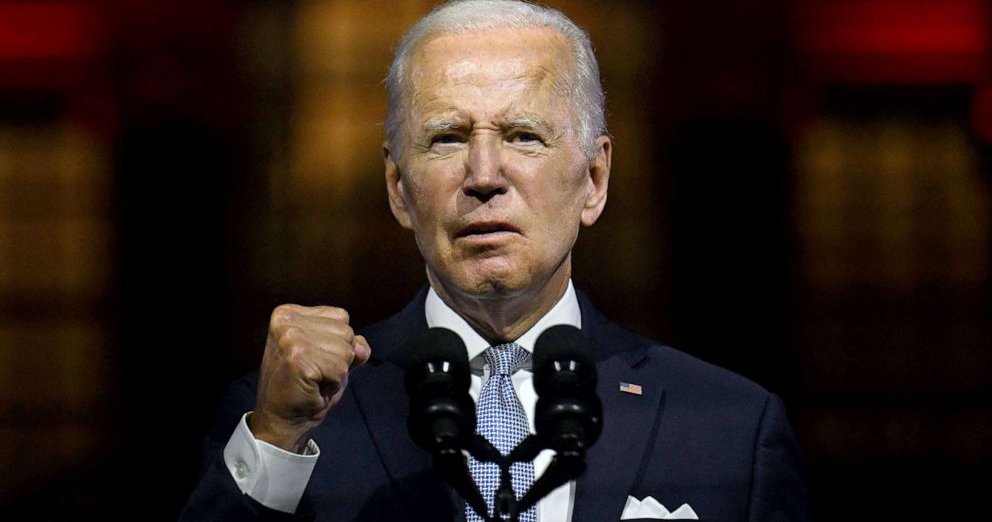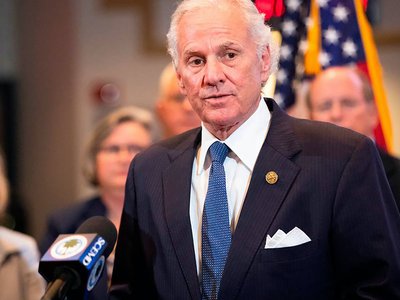Nearly two dozen Republican governors sent President Biden a letter on Monday to express their concern with how his student loan handout plan, which is estimated to cost taxpayers $500 billion, will negatively impact lower income families.
Led by Iowa Gov. Kim Reynolds, the letter, signed by 22 GOP governors in total, targeted Biden's plan that they said "punishes the poor" and shifts the "burden of debt from the wealthy to working Americans."
"As governors, we support making higher education more affordable and accessible for students in our states, but we fundamentally oppose your plan to force American taxpayers to pay off the student loan debt of an elite few – a plan that is estimated to cost the American taxpayer more than $2,000 each or $600 billion total, a price the people of our states cannot afford," the governors stated.
"Only 16-17 percent of Americans have federal student loan debt, and yet, your plan will require their debts be redistributed and paid by the vast majority of taxpayers," the governors continued. "Shifting the burden of debt from the wealthy to working Americans has a regressive impact that harms lower income families. Borrowers with the most debt, such as $50,000 or more, almost exclusively have graduate degrees, meaning hourly workers will pay off the master’s and doctorate degrees of high salaried lawyers, doctors, and professors."
"What’s more, the top 20 percent of earning households hold $3 in student debt for every $1 held by the bottom quintile, generating a lopsided reality where the wealthy benefit at the expense of the working. Simply put, your plan rewards the rich and punishes the poor," they added.
The GOP governors reiterated that the decision for Americans to take out student loans "was their decision" and that those who chose not to take out loans in exchange for college courses "should certainly not be forced to pay for the student loans of others."
"A high-cost degree is not the key to unlocking the American Dream – hard work and personal responsibility is," the governors said. "For many borrowers, they worked hard, made sacrifices, and paid off their debt. For many others, they chose hard work and a paycheck rather than more school and a loan."
The Republican governors also warned Biden that his decision to forgive student loan debt for millions of Americans at the taxpayers' expense will "encourage more student borrowing, incentivize higher tuition rates, and drive-up inflation even further, negatively impacting every American."
"Even economists from your own party oppose your plan for raising demand and increasing inflation," they wrote. "Rather than addressing the rising cost of tuition for higher education or working to lower interest rates for student loans, your plan kicks the can down the road and makes today’s problems worse for tomorrow’s students."
Referencing 2021 remarks from House Speaker Nancy Pelosi that claimed the president "does not have that power" to eliminate student loan debt, the governors insisted that Biden lacks "the authority to wield unilateral action to usher in a sweeping student loan cancellation plan."
In addition to Reynolds, the letter was signed by Alabama Gov. Kay Ivey, Alaska Gov. Mike Dunleavy, Arizona Gov. Doug Ducey, Arkansas Gov. Asa Hutchinson, Florida Gov. Ron DeSantis, Georgia Gov. Brian Kemp, Idaho Gov. Brad Little, Maryland Gov. Larry Hogan, Missouri Gov. Mike Parson, Montana Gov. Greg Gianforte, Nebraska Gov. Pete Ricketts, New Hampshire Gov. Chris Sununu, North Dakota Gov. Doug Burgum, Ohio Gov. Mike DeWine, Oklahoma Gov. Kevin Stitt, South Carolina Gov. Henry McMaster, South Dakota Gov. Kristi Noem, Tennessee Gov. Bill Lee, Texas Gov. Greg Abbott, Utah Gov. Spencer Cox, and Wyoming Gov. Mark Gordon.
Last month, Biden announced up to $20,000 in federal student loan forgiveness. Students who attended college using federal Pell Grants qualify for the $20,000, but those who did not use the program qualify for $10,000 in forgiveness. The handout only applies to borrowers making less than $125,000 per year.
The Committee for a Responsible Budget estimates the cost of the handouts to be around $500 billion.






